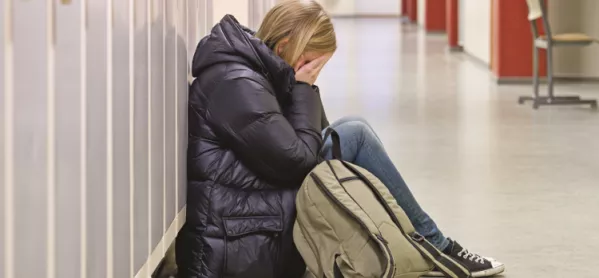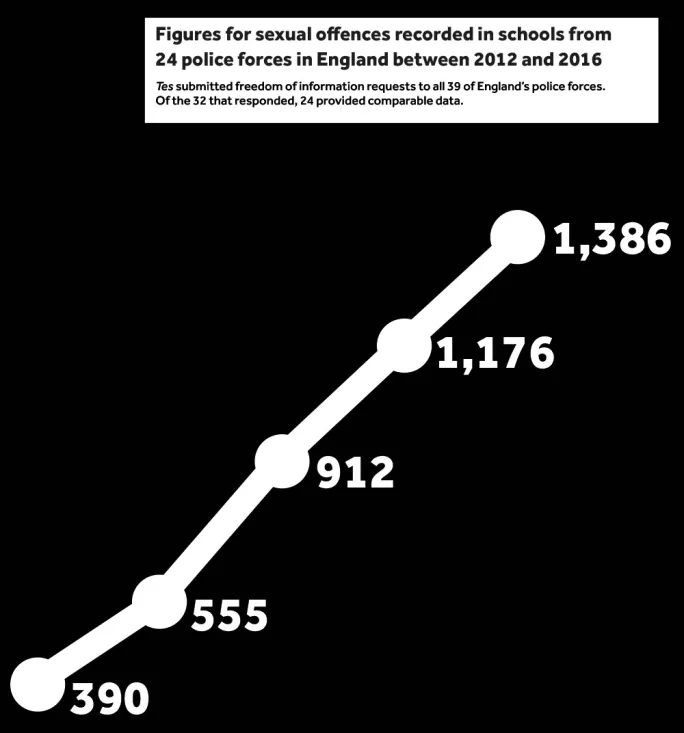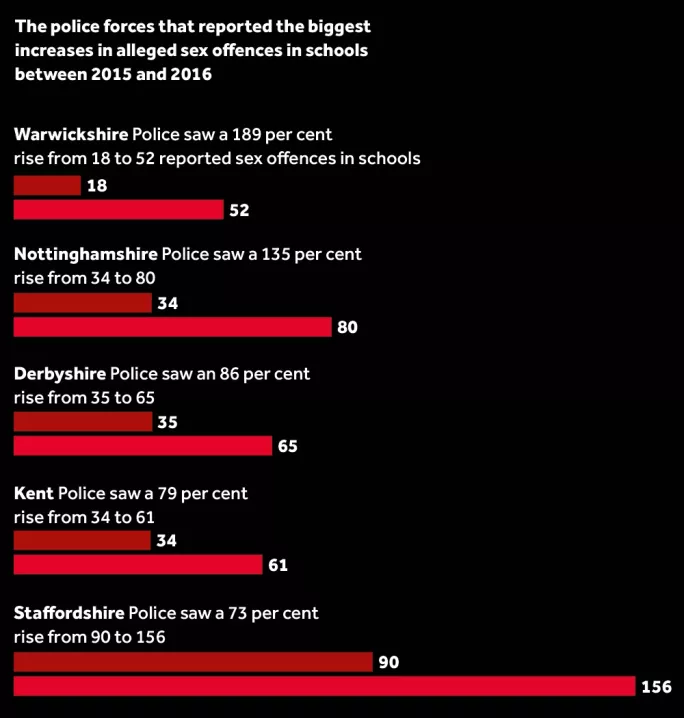- Home
- Exclusive: Sex crimes in schools up by 255 per cent in four years
Exclusive: Sex crimes in schools up by 255 per cent in four years

The annual number of sexual offences reported in schools has more than tripled in four years, a Tes investigation has found.
Police, teaching unions and children’s charities have suggested that online pornography and sexualised videos - which are easier for pupils to access on mobile devices - are partly to blame.
Tes submitted freedom of information requests to all 39 of England’s police forces. Of the 32 that responded, 24 provided comparable data. It reveals that:
- The annual number of sex crimes reported in schools rose by 255 per cent in four years;
- In 2016, the number of alleged sex offences in schools increased by 18 per cent compared with 2015;
- In one area the number nearly trebled with a 189 per cent rise;
- Overall, the figures suggest that teachers as well as pupils have been victims, with about one in 10 of the crimes committed against adults.

Geoff Barton, general secretary of the Association of School and College Leaders (ASCL), said: “School leaders will be horrified at the increase of the figures.
“They will feel all the more need to make sure these things are proactively dealt with and reactively dealt with - in terms of sex education and disciplinary policies.”
Earlier this year, the Department for Education (DfE) decided to make sex and relationships education (SRE) compulsory for all pupils - which was welcomed by unions and charities.
The announcement followed a scathing report from the Commons Women and Equalities Committee, which warned that sexual harassment and abuse of female pupils in schools was “being accepted as part of daily life”.
Despite an apparent move to address the problem, the new figures reveal that two-thirds of the police forces saw a rise in sex offences in schools last year compared with 2015.
Some areas of the country saw the number of reported sex crimes more than double.
The figures do not include England’s three biggest police forces because they all submitted data for “educational establishments” that could include universities and colleges as well as schools. But with sex offences across all educational institutions rising by 28 per cent in London, 26 per cent in Greater Manchester and 24 per cent in the West Midlands - between 2015 and 2016 - the trend is the same.
‘The influence of porn’
Norfolk chief constable Simon Bailey, the National Police Chiefs’ Council lead for child abuse, said the rising number of sexual offences in schools could be partly due to more victims being prepared to report the crimes.
But he added that it is “clear that the increased availability of sexualised material, such as online pornography, poses a real threat to young people”.
Jon Brown, the head of impact and development at NSPCC, said that the sexualisation of young people through advertising and music videos has played a role.
He said: “We think that the real-terms increase could be due to the ease of availability of pornography online. For some young people, that can have undue influence in terms of sexually abusive and sexually aggressive behaviour.
“The majority of young people who do view pornography online are able to make a clear differentiation between viewing that and their real-life sexual behaviour. But for some young people, they are not able to do that - so we think that could be a driver.”

The police figures show that the largest year-on-year rise in the number of alleged sex offences in schools over the past four years was from 2013 to 2014, when the number of reported crimes rose by 64 per cent.
Lucy Russell, campaign manager for children’s charity Plan UK, said the spike may have something to do with events outside schools. For example, sexual abuse allegations, predominantly concerning the abuse of children, against Jimmy Savile came to light at the end of 2012. At around the same time, the child exploitation scandals in Rotherham, Rochdale and Oxford were also reported widely across the media.
Ms Russell added: “I think that it did have a positive effect on increased reporting and it quite often gave young people the vocabulary to talk about it.”
The charity has also been collecting its own evidence since 2013, and found that a significant amount of sexual harassment and sex offences had been occurring in schools across the UK.
Ms Russell said: “Young people were saying, ‘This has become a culture in our classroom, in the corridors and behind the buildings. We don’t feel safe in schools.’
“[They felt] it was just something you had to put up with and it was just something that happened.”
This is an edited article from the 16 June edition of Tes. Subscribers can read the full article here. This week’s Tes magazine is available in all good newsagents. To download the digital edition, Android users can click here and iOS users can click here
Want to keep up with the latest education news and opinion? Follow Tes on Twitter and like Tes on Facebook
Keep reading for just £1 per month
You've reached your limit of free articles this month. Subscribe for £1 per month for three months and get:
- Unlimited access to all Tes magazine content
- Exclusive subscriber-only stories
- Award-winning email newsletters



